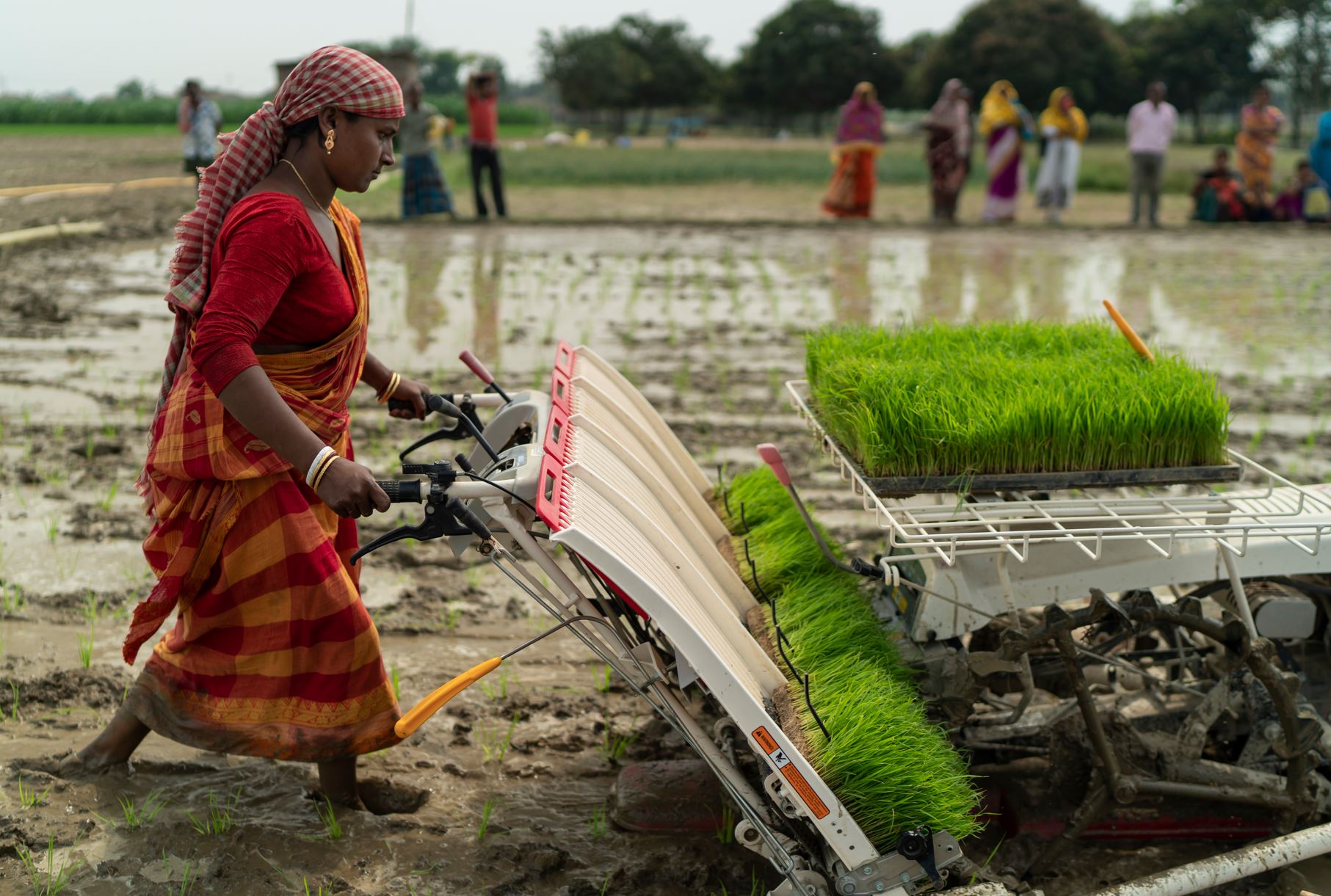A new A$3.5 million research project led by Murdoch University is set to address critical barriers to sustainable farming in Bangladesh.
Jointly funded by ACIAR and Krishi Gobeshona Foundation (KGF), the 5-year initiative will investigate conservation agriculture as a pathway to enhance food security, improve soil health, and boost resilience to climate change in one of the world's most densely populated countries.
The project brings together Bangladeshi partners from research, higher education, industry and a farmers' organisation, including the Bangladesh Agricultural Research Council, Bangladesh Rice Research Institute, Bangladesh Agricultural University, PIO Consulting Ltd and Conservation Agriculture Service Providers Association.
It will focus on improving the adoption of conservation agriculture practices in rice-based systems, a cornerstone of Bangladeshi food production.
ACIAR Research Program Manager, Soil and Land Management, Dr Steven Crimp, said the research will help equip Bangladesh with knowledge and skills needed to face emerging sustainable development challenges.
'Bangladesh's agriculture sector is under growing pressure from population increases, resource constraints and climate change. Conservation agriculture offers a pathway to reduce input costs, increase resilience, and improve sustainability in food production systems,' said Dr Crimp.
'This project reflects Australia's commitment to supporting evidence-based, inclusive agricultural development in the Indo-Pacific region.'
The Government of Bangladesh has identified the need to transform its agriculture sector over the next 2 decades. This transformation must strike a balance between achieving self-sufficiency in rice production, managing natural resources sustainably, and ensuring equitable development benefits for smallholder farmers.
Dr Davina Boyd, the project leader from Murdoch University, emphasised that the research aims to address both the challenges and opportunities of conservation agriculture.
'Our goal is to better understand the pre-conditions for the successful adoption of conservation agriculture in Bangladesh, particularly in intensive rice-based systems. This includes developing reliable and cost-effective methods for establishing rice without soil puddling, which is key to improving long-term sustainability,' said Dr Boyd.
'By quantifying the impacts of conservation agriculture on soil and water systems, and assessing associated risks, we aim to create solutions that are both scientifically robust and practical for smallholder farmers.'
Conservation agriculture-characterised by minimal soil disturbance, crop diversification, and maintaining permanent soil cover-has already demonstrated promise in improving productivity while reducing greenhouse gas emissions. However, its long-term impacts on soil health, hydrology, and risks to farming systems require further exploration.

The stakes are high for local researchers and farmers. With low organic matter in soils, high groundwater usage, and increasing climate variability, smallholder farmers are searching for sustainable ways to maintain or increase yields.
Dr Enamul Haque from Murdoch University is the lead coordinator for the project in country and highlighted the initiative's importance for Bangladeshi farmers.
'Our Bangladeshi crop lands are facing serious soil degradation and water resource management challenges due to extensive crop cultivation under conventional agriculture systems. This project is an opportunity to address these issues while introducing innovative practices like direct seeding of rice and other alternative rice establishment methods related to conservation agriculture that can save labour and reduce costs,' said Dr Haque.
'The insights and tools developed through this project will be invaluable for ensuring that conservation agriculture practices are accessible and beneficial to smallholders across the country.'
The project's expected outcomes include a comprehensive understanding of conservation agriculture's long-term impacts, new scaling approaches for its adoption, and establishing a sustainable platform to enable its out-scaling.
The project will also invest in significant capacity development initiatives, resourcing postgraduate scholarships, and will provide opportunities for supporting early and mid-career researchers to develop research and research management skills through their participation in the project.
'This collaboration represents a critical step toward bridging the gap between scientific research and on-ground implementation. By working closely with our Bangladeshi partners, we aim to deliver tangible benefits for smallholder farmers, develop scientific capacity and contribute to a more sustainable future for agriculture in the region,' said Dr Boyd.
ACIAR and Bangladesh have a collaboration strategy, with strengthening the efficiency and effectiveness of conservation agriculture identified as a major focus.
Learn more about the project via the ACIAR website.






